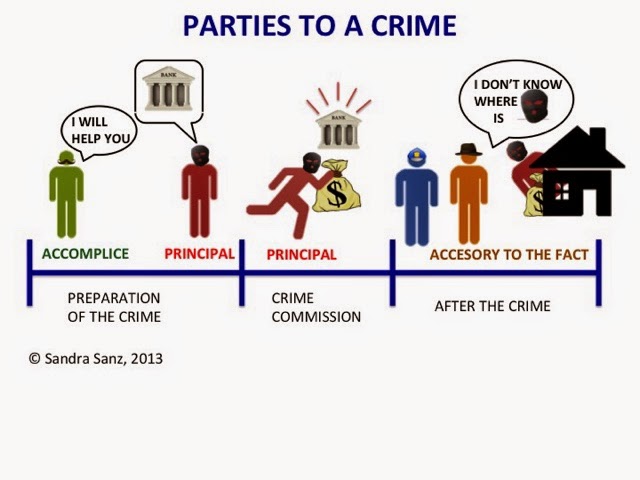Small Claims Cases
In my blog UtMj'S PORTAL, I discussed in brief small claim cases. Considering of the overwhelming reception of this topic, I feel obligated to explain this in detail. Hence, I reblog this small claim cases but this time, I have placed this in my new blog which takes issues of legal Importance.
It is already of common knowledge that in the Philippines, litigation takes time. Not to mention the money spent in filing an action in court, it will really drag like forever before a final resolution is had.
Thus, to address this predicament, the Supreme Court of the Philippines has adopted measures to curb the protracted and costly litigation. It's objectives are to make justice more accessible to the poor and to unburden the courts of heavy dockets. Hence, the Small Claims Cases is birthed.
Small claims courts all over the world are courts of limited jurisdiction that hear civil cases between private litigant.
Coverage of Small Claims Cases:
In the Philippines, small claims cases involves collection of a sum of money not exceeding 100 thousand pesos, excluding interest and costs. To qualify as a Small Claim, the plaintiff's action must be a civil case solely for the payment or the reimbursement of the amount stated.
Claims involving non-monetary relief, including ejectment, are not covered. Civil claims arising from the criminal actions may only be covered if filed before initiation of the criminal action or reserved when the criminal action is filed. Plaintiff's desiring to bring claims exceeding 100 thousand pesos as small claims must reduce their claims to not exceeding 100 thousand pesos and waive their right to claim above the said amount.
Required Forms and Documents:
To file a small claim, the plaintiff must file with the Clerk of Court the following documents, with one duplicate copy for each defendants:
A. Verified Statement of Claim
B. Certification of Non-Forum Shopping
C. Any Actionable Claim Documents and
D. Any Additional Evidence, Including Witness' Affidavits.
After receiving the claim, the Clerk of Court, if necessary, shall administer the oath to the plaintiff at no charge.
Plaintiff's Fees:
All plaintiffs must pay the docket and other legal fees, unless allowed to litigate as an indigent. However, indigent litigants are not exempt from paying the P 1, 000 for service of summons and other processes.
Determination of a Small Claim:
The Judge shall first determine if the claim involves a pure money and does not exceed P100, 000 excluding interest and costs. If it meets both these conditions, it is a small claims case. A claim exceeding P 100, 000 may only be filed as a small claim if the litigant waives any excess of the said amount.
Dismissal of Claim:
After examining the claim and all documents attached and determining that there is/are a ground/s for dismissal of the case, the Judge may dismiss the case outright based on any of the grounds for the dismissal of a civil action under the Rules of Court and applicable jurisprudence.
Defendant's Response:
After receiving the Summons and Notice of Hearing, the defendant must file with the Court and serve on the plaintiff a duly accomplished and verified Response within a non-extendible period of 10 days from receipt. The defendant should attach all supporting evidence, including certified photocopies of documents and affidavits of witnesses, to this Response. The defendant must include all evidence he or she intends to submit. No other evidence will be allowed during the hearing unless good cause is shown.
Defendant's Counterclaim:
A counterclaim by the defendant is allowed if it:
A. Is a small claim
B. Arises out of the same transaction or event that is the subject matter of the plaintiff's claim
C. Does not require the joinder of thrift parties
D. Is not the subject of another pending action.
The counterclaim must be raised in the Response, otherwise the defendant shall be barred from suit on the counterclaim.
The Hearing:
The Clerk of Court shall maintain a separate calendar for small claims cases.
All parties must appear personally at the scheduled hearing. Appearance through a representative is allowed only for a valid cause. The representative must not be a lawyer but must be a relative or next-of-kin of the party; and must be authorized under a Special Power of Attorney to enter into amicable settlement of the dispute and to enter into stipulations or admissions of facts and of documentary exhibits.
No lawyer shall appear at the hearing unless he or she is party to the claim.
If the court determines that a party cannot properly present his or her claim or defense and needs assistance, it may, in its discretion, allow an individual who is not a lawyer to assist the party with the party's consent.
The Judgment:
On the same day of hearing, the Judge must render a decision. The decision, if in favor of the plaintiff, shall be executed upon motion.
Source: Handbook on the Rule of Procedure for Small Claims Cases


Comments
Post a Comment